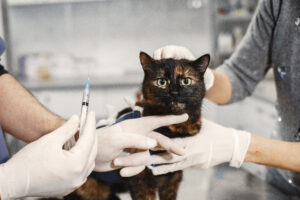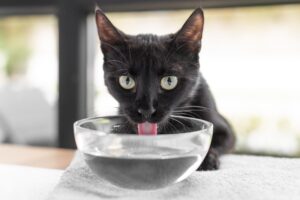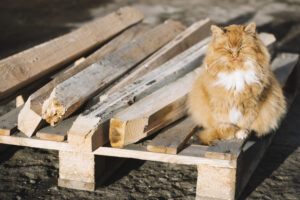Introduction
The world of Donskoy cat breeding is both rewarding and challenging. These unique hairless felines, with their distinctive appearance and affectionate personalities, have captivated cat enthusiasts worldwide. However, for newcomers to Donskoy cat breeding, the journey can be fraught with unexpected pitfalls that could affect both the cats’ wellbeing and the breeder’s reputation.
As the popularity of Donskoy cats continues to rise, more enthusiasts are considering becoming Donskoy cat breeders. Whether you’re seeking Donskoy kittens for sale with breeding rights or planning to establish your own Donskoy cat cattery, understanding common mistakes can save you significant heartache and resources.
In this comprehensive guide, we’ll explore five alarming mistakes that new Donskoy cat breeders frequently make and provide expert advice on how to avoid them. From health considerations to ethical breeding practices, this information is essential for anyone serious about breeding these extraordinary felines.
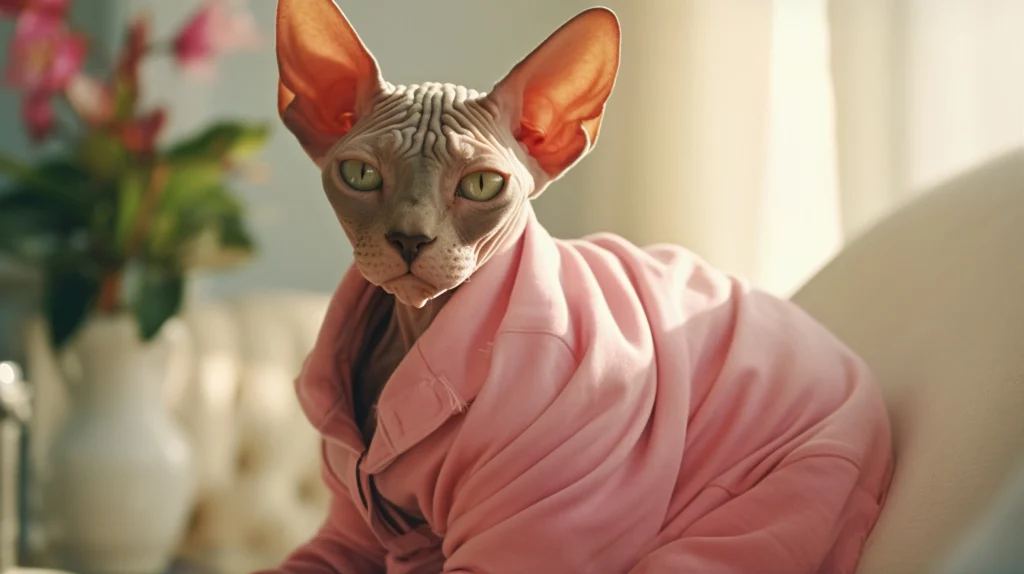
The Rising Popularity of Donskoy Cats
Before diving into common breeding mistakes, it’s worth understanding why so many people are drawn to becoming Donskoy cat breeders. Originating from Russia in the 1980s, this relatively new breed has gained international recognition for its intelligence, loyalty, and distinctive appearance.
Unlike the Sphynx cat, which is hairless due to a recessive gene, the Donskoy’s hairlessness comes from a dominant gene. This unique genetic makeup makes them fascinating subjects for ethical breeding programs and contributes to the increasing Donskoy cat price in the market.
For potential breeders searching for “Donskoy cat breeders near me” or “Donskoy cat for adoption with breeding rights,” understanding the breed’s specific needs is crucial. These cats require specialized care that directly impacts successful breeding outcomes.
Now, let’s examine the five most concerning mistakes new Donskoy cat breeders make and how you can avoid falling into these common traps.
Mistake #1: Inadequate Understanding of Donskoy Genetics and Health Issues
One of the most alarming mistakes new Donskoy cat breeders make is diving into breeding without a thorough understanding of the breed’s genetic profile and potential health concerns.
The Problem
Donskoy cats carry specific genetic traits that require careful consideration during breeding. Their hairlessness is caused by a dominant mutation that can be associated with other health concerns when breeding practices aren’t carefully controlled. Many novice breeders fail to educate themselves about genetic testing, hereditary conditions, and proper screening protocols.
Dr. Elena Petrova, a renowned Donskoy cat breeder from Moscow with over 20 years of experience, explains: “The Donskoy’s dominant hairless gene can mask other genetic issues if breeders don’t conduct proper health screenings. This leads to kittens with preventable health problems that could have been avoided with genetic testing.”
Common health issues in Donskoy cats that have genetic components include:
- Hypertrophic cardiomyopathy (HCM)
- Dental issues
- Skin problems
- Temperature regulation difficulties
The Solution
Reputable Donskoy cat breeders in the USA, UK, Canada, and worldwide implement rigorous genetic testing programs. Before establishing your breeding program:
- Partner with experienced breeders: Connect with established Donskoy cat breeders in Australia, Europe, or your local region who can mentor you.
- Invest in genetic testing: Work with veterinarians specializing in feline genetics to test for known hereditary conditions.
- Maintain detailed records: Document health histories for all breeding cats and their offspring.
- Continuous education: Stay updated on the latest research about Donskoy cat health through breed-specific forums and veterinary journals.
- Join breed associations: Organizations like The International Cat Association (TICA) offer resources specifically for Donskoy cat breeders.
By prioritizing genetic health, you’ll not only produce healthier Donskoy kittens for sale but also contribute positively to the breed’s future.

Mistake #2: Insufficient Climate and Environmental Control
The second critical mistake involves underestimating the environmental needs of hairless Donskoy cats, particularly regarding temperature control and skin protection.
The Problem
Donskoy cats lack the protective fur coat that most felines have, making them exceptionally vulnerable to environmental factors. Without proper environmental controls, these cats can suffer from:
- Hypothermia in cold environments
- Sunburn and skin damage from UV exposure
- Skin infections from improper hygiene
- Dehydration and overheating in warm weather
James Wilson, owner of Velvet Touch Cattery, a respected Donskoy cat breeder in California, shares: “When I started breeding Donskoys, I didn’t realize how precisely I needed to control my cattery’s environment. One of my first breeding cats developed severe skin issues because my heating system wasn’t maintaining consistent temperatures. It was a costly and heartbreaking lesson.”
The Solution
Professional Donskoy cat breeders in Texas, Florida, and other regions with variable climates implement these environmental controls:
- Climate-controlled facilities: Maintain temperatures between 75-80°F (24-27°C) year-round in all cat living areas.
- Humidity monitoring: Keep humidity levels between 40-60% to prevent skin dryness.
- Protected sunlight exposure: Provide natural light but use UV-filtering windows or cat-safe sunscreen for limited outdoor time.
- Specialized bedding: Offer self-warming beds and soft, clean fabrics that won’t irritate sensitive skin.
- Regular bathing routine: Establish weekly bathing schedules using appropriate products for hairless cats.
Donskoy cat breeders in New York and other northern regions often invest in advanced heating systems, while breeders in warmer climates like Donskoy cat breeders in Sydney or Melbourne focus on cooling solutions.
By creating an ideal environment, you’ll ensure your breeding cats remain healthy and comfortable, which directly impacts breeding success and kitten health.
Mistake #3: Rushing Into Breeding Without Proper Certification and Knowledge

Many enthusiasts, excited by the prospect of raising Donskoy kittens, rush into breeding without obtaining proper certification or developing sufficient knowledge about responsible breeding practices.
The Problem
Without proper breeding credentials and knowledge, novice Donskoy cat breeders risk:
- Producing kittens with preventable health issues
- Facing challenges with registration and pedigree documentation
- Damaging their reputation within the breeding community
- Contributing to ethical concerns in cat breeding
- Legal issues in regions with breeding regulations
Maria Gonzalez, a respected Donskoy cat breeder in Spain with international recognition, notes: “I regularly encounter people who purchased a Donskoy cat for adoption and immediately decided to become breeders. Without understanding the breed standards, health requirements, and ethical considerations, they end up with kittens that don’t meet breed standards and may have preventable health issues.”
The Solution
Established Donskoy cat breeders in Ontario, Toronto, and other major breeding centers recommend:
- Obtaining proper certification: Register with recognized cat breeding associations like TICA, CFA, or regional equivalents.
- Mentorship programs: Apprentice with experienced Donskoy cat breeders in London, Germany, or other established breeding communities.
- Attending breed-specific workshops: Participate in seminars focused on Donskoy cat breeding.
- Showing cats before breeding: Enter cat shows to receive professional evaluation of your cats against breed standards.
- Creating a breeding plan: Develop a detailed breeding strategy that prioritizes genetic diversity and health.
- Understanding legal requirements: Research local regulations regarding cat breeding, which vary significantly between Donskoy cat breeders in France versus Donskoy cat breeders in Dubai or other regions.
According to the International Donskoy Breeders Association, breeders should have at least two years of experience with the breed before attempting their first litter. This preparation period ensures you have the knowledge and resources to produce healthy, well-socialized kittens.
Mistake #4: Inadequate Nutrition and Specialized Care
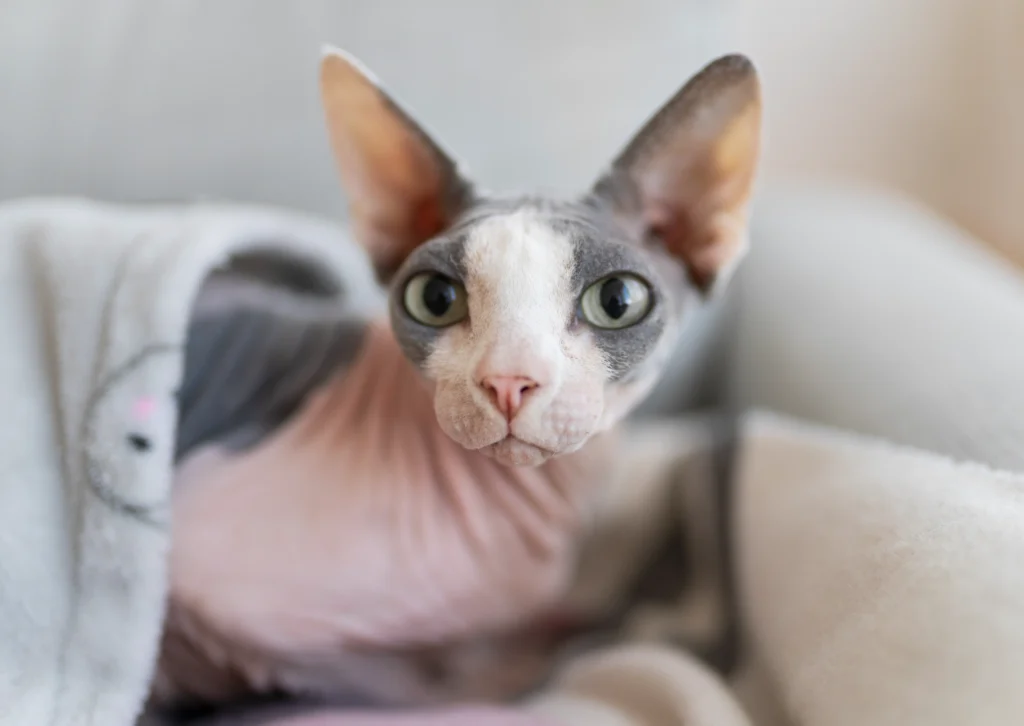
Hairless breeds like the Donskoy have unique nutritional and care requirements that many new breeders underestimate.
The Problem
Donskoy cats have higher metabolic rates than many furred cats, requiring specific nutritional considerations. Their hairless condition also demands specialized skin care. Mistakes in these areas can lead to:
- Malnutrition affecting breeding performance
- Developmental issues in kittens
- Skin conditions requiring veterinary intervention
- Reduced immune function
- Dental problems affecting overall health
Dr. Sarah Johnson, veterinary consultant for several Donskoy cat breeders in the Netherlands and Poland, explains: “Donskoys burn calories faster to maintain body temperature, and breeding females have even higher nutritional needs. Without proper nutrition, reproductive health suffers dramatically.”
The Solution
Top Donskoy cat breeders in Russia, the breed’s homeland, implement these nutritional and care practices:
- High-quality, calorie-dense nutrition: Provide premium cat food with higher protein and fat content specifically formulated for active breeds.
- Breeding-specific supplements: Add supplements containing taurine, omega fatty acids, and vitamins E and A for skin health.
- Increased feeding frequency: Offer smaller, more frequent meals to support higher metabolism.
- Regular skin care routine: Develop weekly skin cleaning and moisturizing protocols using products safe for cats.
- Dental hygiene program: Implement regular dental care to prevent the periodontal disease common in hairless breeds.
- Specialized pregnancy nutrition: Provide additional nutritional support for pregnant and nursing queens.
Donskoy cat breeders in Italy and Japan often collaborate with feline nutritionists to develop custom feeding programs for their catteries. This specialized approach ensures breeding cats receive optimal nutrition for reproductive health and kitten development.
By recognizing the unique needs of Donskoy cats, you’ll avoid the nutritional pitfalls that compromise many new breeding programs.
Mistake #5: Failing to Develop a Responsible Placement and Support Network
Perhaps the most ethically concerning mistake is failing to establish proper protocols for kitten placement and ongoing support for new Donskoy cat owners.
The Problem
Without careful placement procedures and support systems, breeders risk:
- Kittens going to unprepared or unsuitable homes
- Cats being surrendered to shelters or rescue organizations
- Breeding reputation damage from dissatisfied customers
- Contributing to cat overpopulation if breeding rights aren’t properly managed
- Legal and ethical issues regarding animal welfare
Thomas Baker, who operates a small but respected Donskoy cattery in South Africa, shares: “The most heartbreaking experience for me was learning that a kitten I sold ended up in a shelter because the owner wasn’t prepared for the care requirements. Now I have an extensive screening process and ongoing support program for all my kitten placements.”
The Solution
Established Donskoy cat breeders in Singapore, Malaysia, and other Asian markets implement these responsible practices:
- Comprehensive screening process: Develop detailed applications and interviews for potential buyers.
- Education programs: Create resources for new owners about Donskoy cat care requirements.
- Health guarantees: Offer clear health warranties with specific terms.
- Spay/neuter contracts: Require non-breeding pets to be altered unless selling to qualified breeders.
- Lifetime return policy: Commit to taking back any cat you’ve bred if the owner can no longer care for it.
- Owner support network: Establish online groups or regular check-ins with new owners.
- Transparent pricing: Set fair Donskoy cat prices that reflect quality without exploitation.
According to a survey by the International Hairless Cat Association, Donskoy cat breeders who provide ongoing support experience 85% fewer returns and rehoming situations compared to those without support programs.
By developing responsible placement practices, you protect both the cats you breed and your reputation in the breeding community.
Best Practices for Aspiring Donskoy Cat Breeders
Beyond avoiding these five critical mistakes, successful Donskoy cat breeders follow these best practices:
Ethical Breeding Standards
- Limit breeding frequency to protect the health of queens
- Retire breeding cats at appropriate ages
- Maintain small, manageable breeding programs
- Focus on quality over quantity
- Prioritize temperament alongside physical traits
Professional Development
- Network with other Donskoy cat breeders in Thailand, Philippines, and worldwide
- Attend cat shows and breeding conferences
- Participate in breed-specific research when possible
- Stay updated on veterinary advancements for hairless breeds
Business Considerations
- Develop a professional website showcasing your Donskoy cat cattery
- Create clear contracts and policies
- Maintain detailed records of all breeding activities
- Establish relationships with veterinarians specializing in reproduction
- Calculate true costs before setting Donskoy kitten prices
Finding Reputable Donskoy Cat Breeders
For those considering purchasing a Donskoy kitten rather than becoming a breeder, here are signs of reputable Donskoy cat breeders:
- Transparency: They openly discuss health testing and show complete pedigrees
- Health guarantees: They offer written health warranties
- Facilities: They welcome visits to see their cattery conditions
- References: They provide references from previous kitten buyers
- Knowledge: They educate buyers about the breed’s specific needs
- Support: They offer lifetime support for kittens they’ve bred
- Ethics: They prioritize cat welfare over profit
When searching for “Donskoy cat breeders near me,” ask these questions:
- What health testing do you perform on breeding cats?
- How many litters do your queens have yearly?
- What socialization do kittens receive before placement?
- What support do you offer after purchase?
- Can I see where the cats live?
Donskoy Cat Breeders by Region
Finding Donskoy cat breeders in your region requires research. Here’s a general overview of the breeding landscape:
North America
- Donskoy cat breeders USA: Concentrated in California, Texas, Florida, and New York
- Donskoy cat breeders Canada: Primarily in Ontario and Toronto regions
- Most catteries maintain waiting lists due to limited breeding programs
Europe
- Donskoy cat breeders UK: Small but growing number, primarily around London
- Donskoy cat breeders Russia: The breed’s homeland offers the largest selection of breeders
- Donskoy cat breeders Europe: Growing communities in Germany, France, Netherlands, Poland, Spain, and Italy
Australia and New Zealand
- Donskoy cat breeders Australia: Emerging breeding programs in Sydney and Melbourne
- Donskoy cat breeders New Zealand: Limited options with most breeders on the North Island
Asia
- Growing breeding programs in Japan, Singapore, Malaysia, Thailand, Philippines, Indonesia, and India
- Donskoy cat breeders Dubai: Emerging luxury pet market with specialized breeders
Africa
- Donskoy cat breeders South Africa: Small but developing breeding community
- Limited options in other African nations
For those unable to locate Donskoy cat breeders nearby, consider:
- Joining waiting lists with reputable breeders willing to ship
- Exploring Donskoy cat for adoption options through breed-specific rescues
- Connecting with breed clubs that may know of available kittens
Conclusion
Becoming a successful Donskoy cat breeder requires more than just a love for these extraordinary felines. By avoiding the five critical mistakes we’ve discussed—inadequate genetic understanding, insufficient environmental control, rushing without proper knowledge, inadequate specialized care, and poor placement practices—you’ll be well-positioned to establish an ethical and respected breeding program.
Remember that responsible Donskoy cat breeders prioritize cat welfare above all else. The goal isn’t simply producing Donskoy kittens for sale but contributing positively to this unique breed’s development and health.
Whether you’re searching for Donskoy cat breeders near me or planning to become one yourself, this knowledge helps create better outcomes for these special cats. The journey of breeding Donskoy cats is challenging but deeply rewarding when approached with proper preparation and ethical standards.
For more information about exotic cat breeds and responsible pet ownership, visit our other articles at PetsPump.
Additional Resources
For aspiring Donskoy cat breeders, these resources provide valuable information:
- The International Cat Association (TICA) – Breed standards and registration information
- Feline Veterinary Medical Association – Health resources for breeders
- Donskoy Cat Club of America – Networking and education
- International Donskoy Breeders Association – Ethical breeding guidelines
- PetsPump Cat Care Guides – General cat health and wellness information
Disclaimer: This article is for informational purposes only and does not substitute for professional veterinary advice. Always consult with a qualified veterinarian before beginning a breeding program.
Last Updated: May 2, 2025



